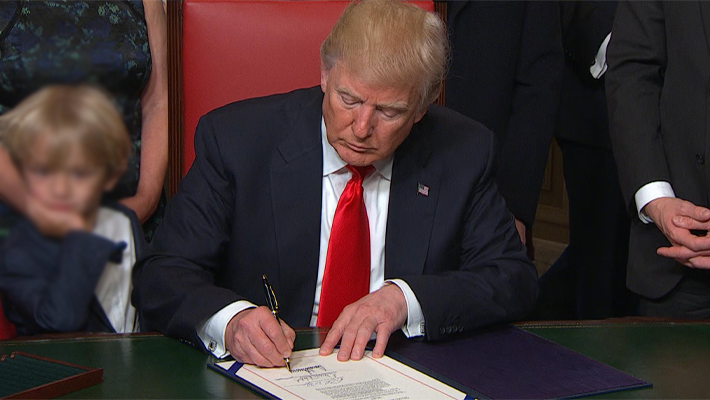The Looming Threat of Trump’s Energy Policies on Nigeria’s Economy
Nigeria’s economic reliance on oil exports makes it particularly vulnerable to fluctuations in global crude prices. The resurgence of pro-oil policies under former US President Donald Trump posed a significant threat to Nigeria’s economic stability. Trump’s agenda, focused on boosting domestic fossil fuel production and reversing green energy initiatives, was projected to intensify global competition and consequently drive down oil prices. This scenario presented a double-edged sword for Nigeria: while lower oil prices could benefit consumers and businesses by reducing energy costs, the impact on government revenue, heavily dependent on oil exports, could be devastating.
Nigeria’s economic vulnerability stems from its overdependence on crude oil, which accounts for over 85% of its export earnings and 30% of government revenue. A fall in global crude prices, triggered by increased US production, would directly impact Nigeria’s foreign exchange earnings, reserves, and exchange rate. This poses a significant challenge to the country’s fiscal stability, particularly considering its ambitious budget plans reliant on substantial oil revenue. The situation is further complicated by existing production challenges, including infrastructure deficits, oil theft, and OPEC+ quota restrictions, hindering Nigeria’s ability to meet its revenue targets.
While the prospect of lower global oil prices presents a grim picture for government revenue, it offers a potential silver lining for Nigerian businesses and consumers. Reduced crude prices translate to lower costs for petroleum products like petrol and diesel, providing much-needed relief to businesses grappling with high energy costs. In a deregulated petroleum sector, this price reduction would be swiftly felt, easing the cost burden on transporters, manufacturers, and other industries reliant on fuel. However, the benefits of lower energy costs must be weighed against the potential damage to government finances, emphasizing the delicate balancing act Nigeria faces.
Geopolitical factors add another layer of complexity to the oil price equation. Trump’s stance on the Russia-Ukraine war, particularly the potential lifting of sanctions against Russia, could further depress oil prices. A return of Russian oil and gas to the global market would intensify price competition, exacerbating the strain on Nigeria’s oil revenue streams. This scenario underscores the interconnectedness of global politics and economics and highlights the vulnerability of countries like Nigeria that are heavily reliant on a single commodity.
The confluence of increased US oil production and potential re-entry of Russian oil and gas into the market creates a perfect storm for Nigeria’s oil-dependent economy. While lower fuel prices offer some respite to industries, the potential damage to government revenue is substantial, especially considering Nigeria’s existing struggles with rising debt and a foreign exchange crisis. This precarious situation emphasizes the urgent need for economic diversification, a long-standing recommendation that has gained renewed importance in the face of these external threats.
Navigating this complex landscape requires a strategic approach. Nigeria faces a critical choice: either ramp up crude oil production to offset potential price drops or accelerate structural economic reforms to diversify its economy and reduce its reliance on oil. The former approach is fraught with challenges, given existing production limitations and the uncertainty of future oil prices. The latter, while more sustainable in the long run, requires significant investment and policy reforms. This underscores the critical juncture Nigeria faces and the imperative for decisive action to safeguard its economic future. Diversification into sectors like agriculture, technology, and renewable energy is crucial to mitigate the impact of external market shocks and build a more resilient and sustainable economy. The potential impact of Trump’s energy policies serves as a stark reminder of Nigeria’s vulnerability and the urgent need for transformative economic change.














